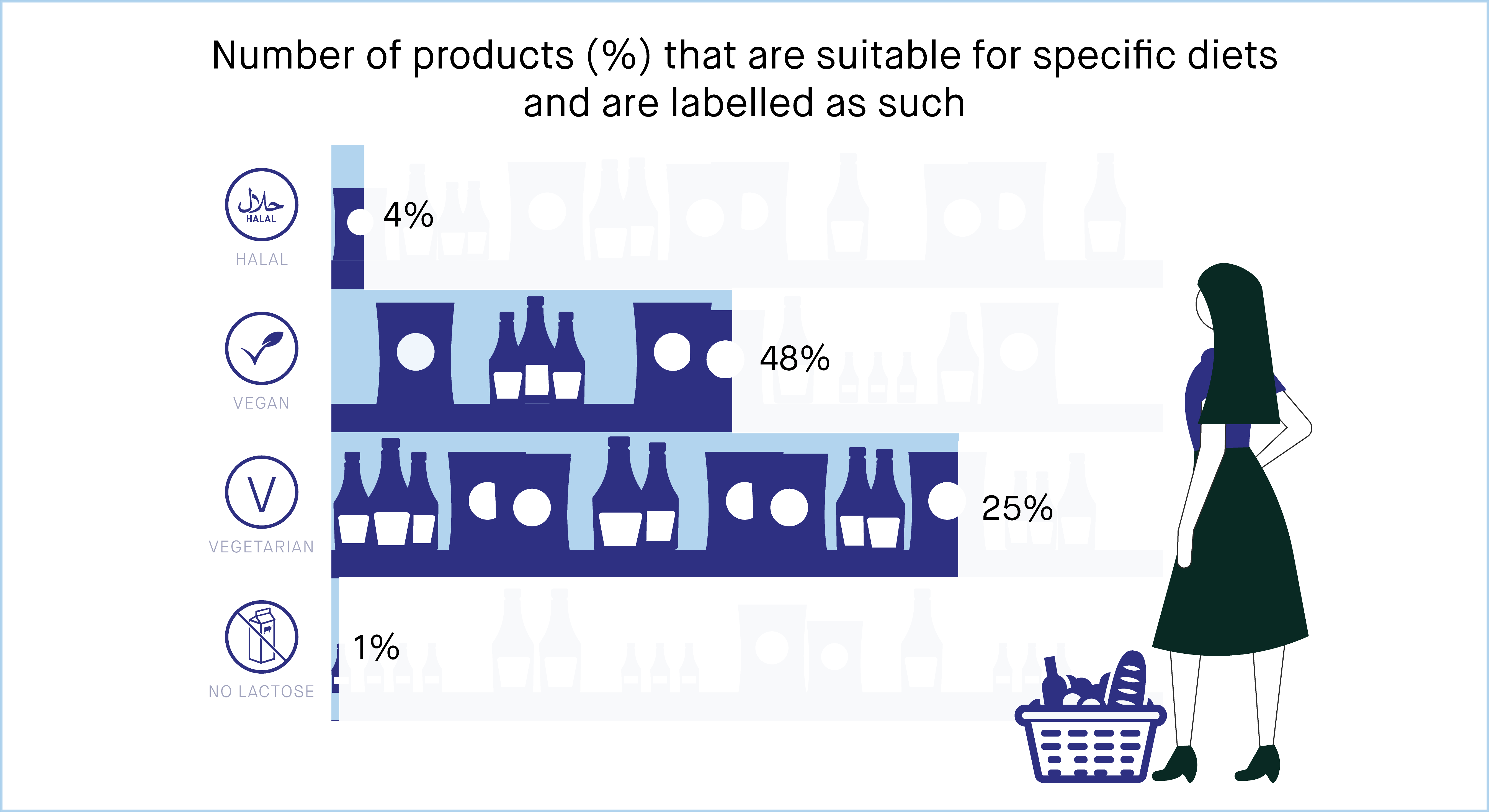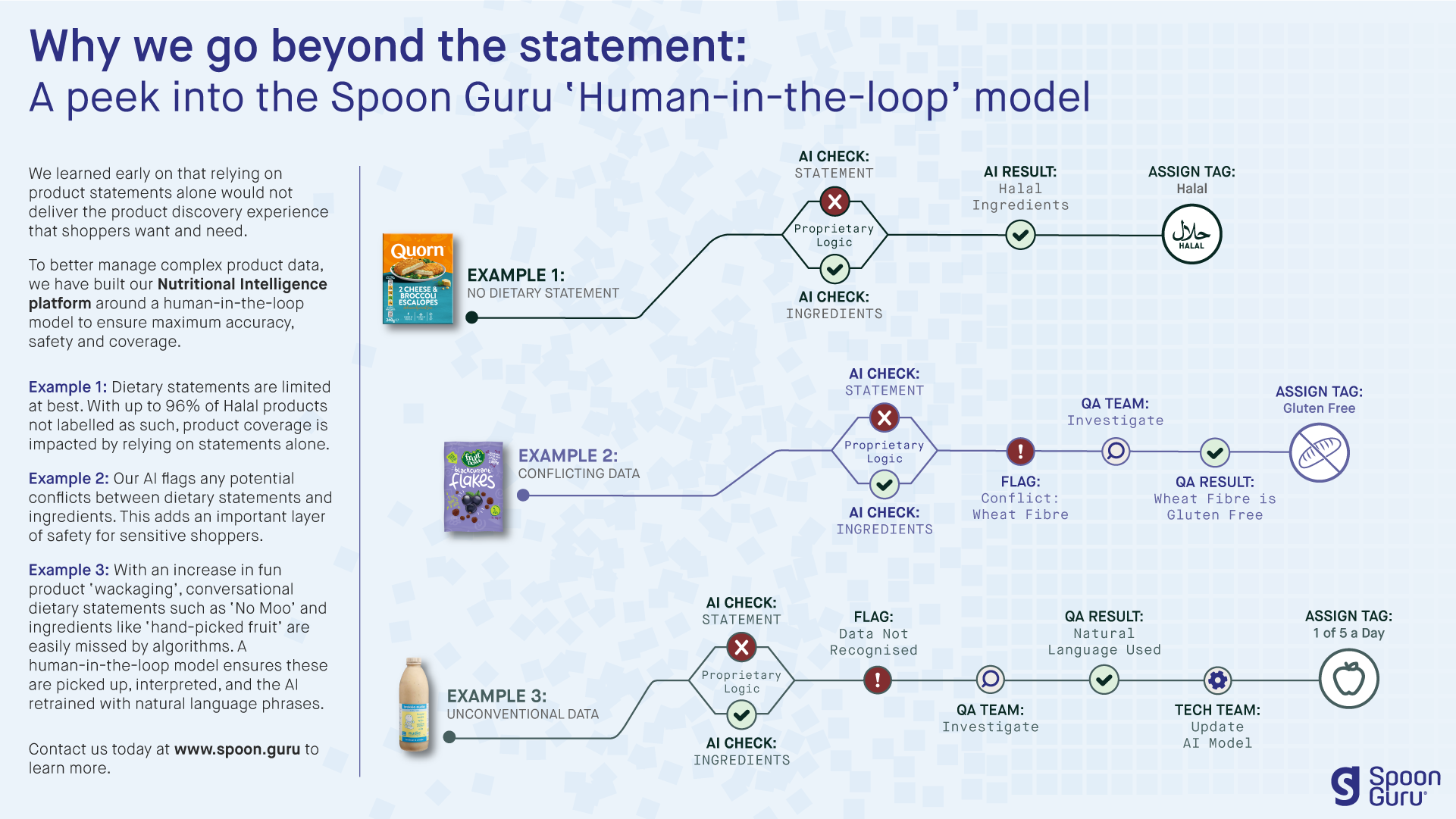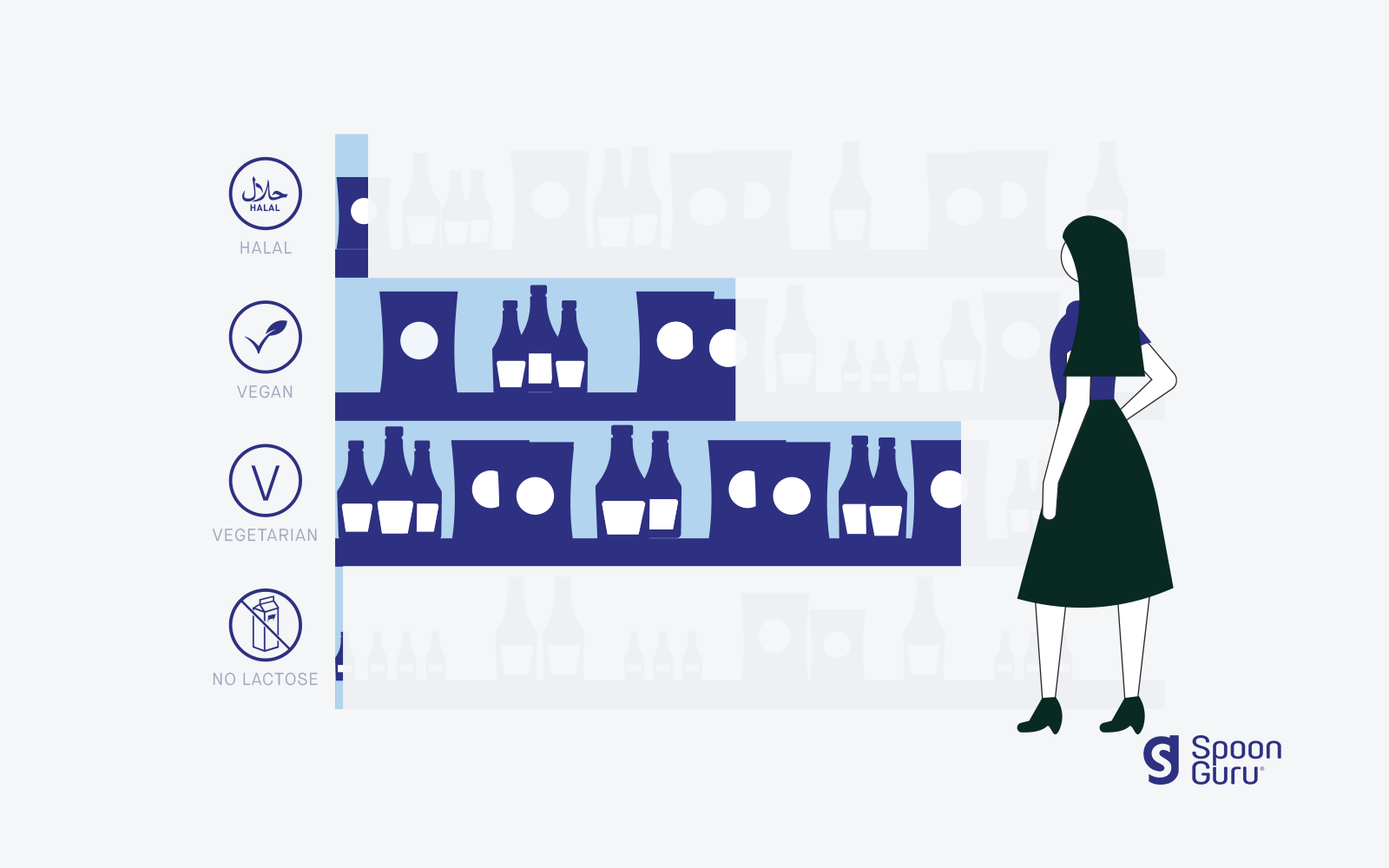Training AI to look beyond product statements is no longer a nice-to-have. It’s now a must-have.
We learned early on that relying on product statements alone would not deliver the product discovery experience that shoppers want and need. And from a retailer’s perspective, when products cannot be found with the dietary filters that online shoppers have come to expect, they may as well be out of stock.
For retailers using basic technology systems to inform their dietary filters, there are a few reasons their products may miss out on showing up in searches, ranging from the prioritisation of health and dietary statements for limited front-of-pack space, to the language in which the statements are written.
Packaging space is at a premium
With limited packaging space available, CPGs need to prioritise which suitability statements are included, meaning that many common diets simply miss out. Halal is a great example of this, with only 4% of products that are suitable for a Halal diet being labelled as such, leaving 96% of Halal products potentially unidentified.
And this carries through to many other diets too. We found that over half of all Vegan products, a quarter of Vegetarian products, and a whopping 99% of Lactose Free products are missing suitability statements, rendering them virtually invisible to shoppers using sites with statement-dependent filters.

Sites using statement-dependent dietary filters are not surfacing many of the products that are available to shoppers.
Computers don’t understand colloquial language
A continuing marketing trend in food brands, is use of ‘wackaging’ – or packaging information written in quirky and conversational language. From a marketing perspective, replacing traditionally dry dietary information like ‘Dairy Free’ with the more informal and friendlier sounding ‘No Moo’ can help to endear a brand to consumers, however the nuances of conversational language often gets lost in a system trained on basic datasets.
How Spoon Guru works
To better manage complex product data, we have built our Nutritional Intelligence system around a human-in-the-loop model to ensure maximum accuracy, safety and coverage in a retailer’s product discovery offering.
Because Spoon Guru’s AI looks at a product’s ingredients to determine its suitability for different diets, we are able to accurately allocate more TAGs® per product, and increase the visibility of a retailer’s overall product offering. For example, we will know if a product is Halal by the ingredients that are not on the label, rather than relying on a CPG manufacturer to proactively identify and label their product as such.
However, some products may have a suitability statement that conflicts with its ingredients – for example a product may claim to be ‘Gluten Free’, but lists ‘Wheat’ as an ingredient. In this instance our AI will flag the product to our QA team who will manually check the product data and determine whether the wheat in the product is, in fact, gluten free, and then either approve or override the AI’s recommendation to exclude it from the Gluten Free filter.
Products with quirky wording that cannot be decoded by our AI are also flagged to our QA Team who will then interpret the language used and retrain our AI model to understand this for future cases.

Retailers using our technology have found that by implementing our TAGs technology, their Average Order Value, Basket Size and Conversion Rates have increased as their shoppers are better able to quickly and easily find a broader range of products suitable for their individual needs.
If you’d like to find out more, please contact us today.
 |
